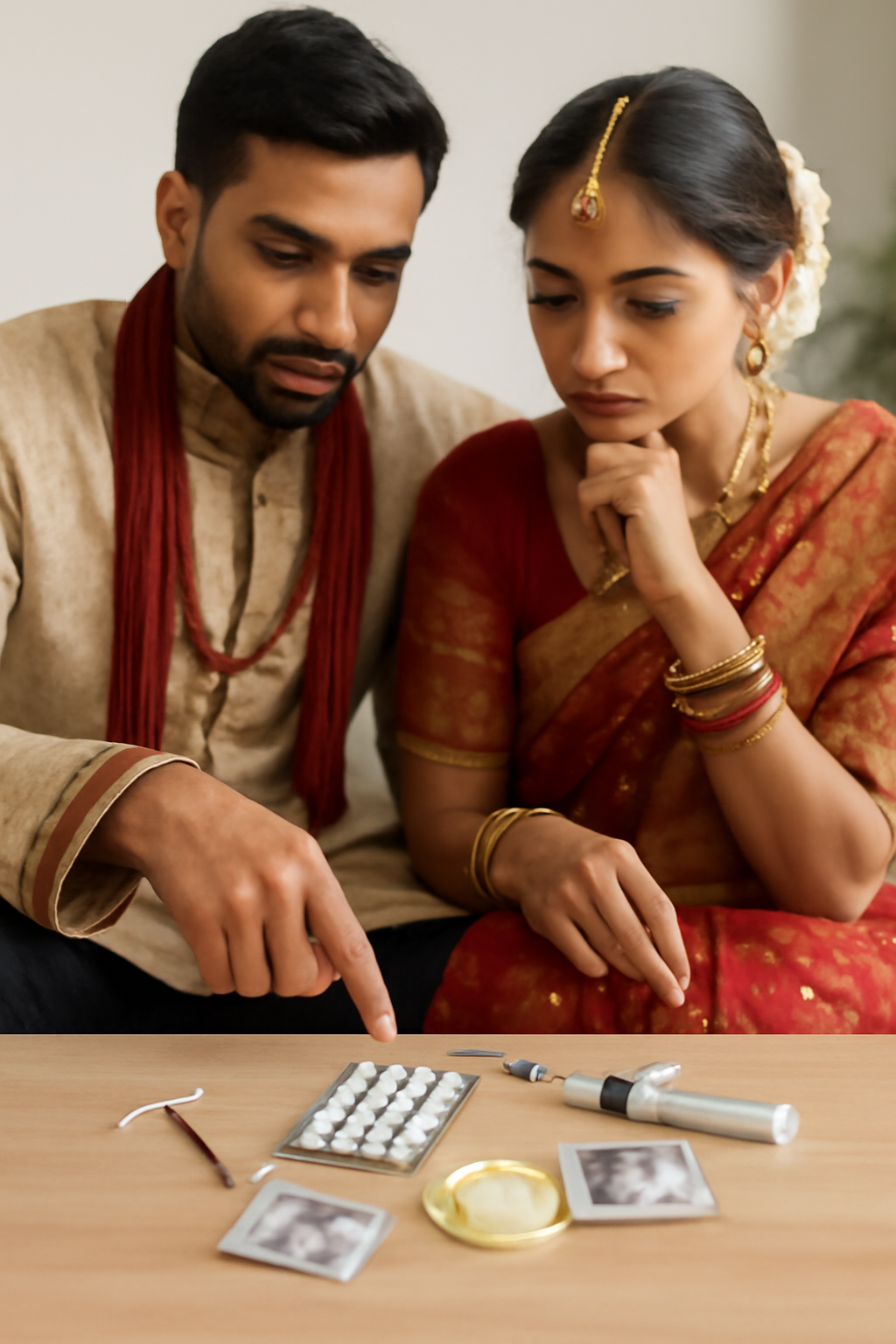Contraceptive Choices for Newly Married Couples: A Warm & Practical Guide in India
Dr Sagar Jha discusses about discovering contraceptive choices for newly married couples in India — explained in a friendly, relatable way. Learn safe, effective, and affordable options to plan your family.
A New Chapter, New Decisions
The wedding celebrations are over, the photographs are framed, and now it’s just the two of you — building a life together. Amid all the excitement, there’s one quiet but important conversation that many newly married couples in India have: “Do we want children right away, or should we wait?”
Family planning isn’t about saying “no” to parenthood — it’s about saying “yes” to the right timing. And that’s where contraceptive choices come in.
Why Contraception Matters in the Early Years of Marriage
Think of contraception as the gentle pause button in your love story — giving you time to adjust to married life, focus on careers, or travel together before starting a family. It helps avoid unplanned pregnancies, reduces anxiety, and lets you make decisions from a place of readiness rather than urgency.
The Everyday Heroes: Short-Term Methods
When you’re still figuring out your schedules, moods, and maybe even your favourite chai spot as a couple, short-term methods are a good starting point.
Condoms
They may seem old-school, but condoms are reliable, easy to find in India (yes, even at your local kirana store), and they protect against sexually transmitted infections. Plus, no hormones, no prescriptions — just a simple, practical choice.
Oral Contraceptive Pills (OCPs)
If you prefer something discreet, pills can be a great option. Many Indian women start with brands like Yasmin, Femilon, or the government’s free Mala-D pills. Taken daily, they’re highly effective and can even help with period cramps. But remember — consistency is key. Missed pills can reduce effectiveness.
The Long-Game: Reversible Long-Term Options
Once you’re settled into married life and know you want to avoid pregnancy for a few years, you might explore longer-lasting solutions.
Intrauterine Devices (IUDs)
Imagine setting an alarm for five years and forgetting about it — that’s how hassle-free hormonal IUDs like Mirena can be. Or go hormone-free with a copper IUD (CuT), which lasts up to 10 years. Both require a clinic visit for insertion, but after that, they quietly do their job while you get on with life.
Injectable Contraceptives (DMPA)
A quick shot every three months — that’s all it takes. Depo-Provera is one option in India, and it’s popular among couples who want privacy. The only catch? Fertility might take a few months to return after stopping.
Natural & Permanent Choices
Some couples prefer natural family planning, like tracking fertile days or using the withdrawal method. It’s budget-friendly but needs a lot of discipline and cooperation.
Permanent methods, like tubectomy for women or vasectomy for men, are for couples certain they don’t want children in the future — not usually the first choice for newlyweds.
Myths That Need to Go
- “Pills cause permanent infertility.” Nope — fertility typically returns in 1–3 months after stopping.
- “Condoms kill the mood.” Modern ultra-thin varieties feel natural and keep things safe.
- “IUDs are unbearably painful to insert.” Most women experience only brief discomfort.
Choosing What Works for You
Every couple’s story is different. Your decision should factor in:
- Your health history (PCOS, migraines, hypertension)
- How long you want to wait before pregnancy
- Comfort and convenience
- Cost and availability in your area
A good place to start? Book a consultation with a trusted gynecologist. They can help you match your lifestyle with the right method.
Frequently Asked Questions (FAQ)
Q: Can newly married couples use IUDs?
Yes, IUDs can be used by women who have not had children, but insertion should be done by an experienced gynecologist.
Q: Which contraceptive is best for newly married couples?
It depends on your comfort, health, and plans for pregnancy. Condoms and OCPs are most common starting choices.
Q: Are there government-provided free contraceptives in India?
Yes, through the Family Planning Programme — includes condoms, Mala-D pills, Copper T IUDs, and sterilization services.
Final Thoughts
Contraception isn’t just a medical decision — it’s a relationship decision. The right choice can give you freedom, peace of mind, and the space to grow together before you grow your family.
So whether it’s a packet of condoms in your drawer, a daily pill, or a long-term IUD, remember — it’s not about putting life on hold, it’s about choosing when to turn the page. for any further queries reach out to Dr Sagar Jha
If you want to know early signs of pregnancy click here https://drsagarjha.com/early-signs-of-pregnancy-how-to-know-if-you-might-be-expecting/
